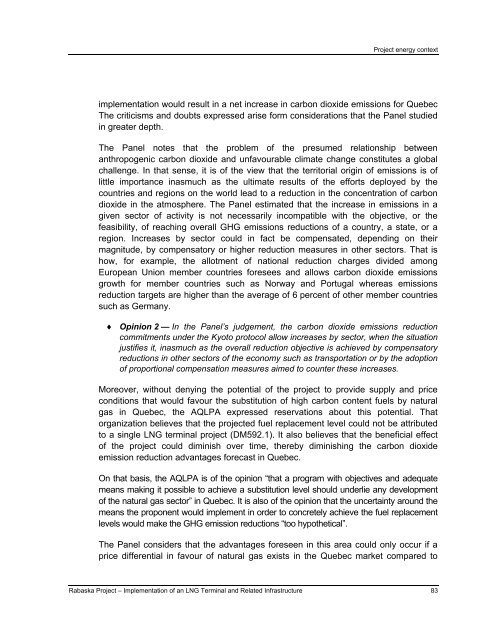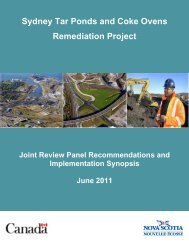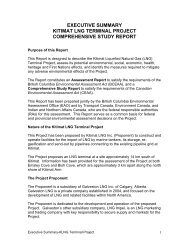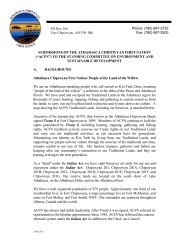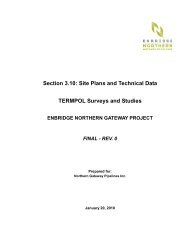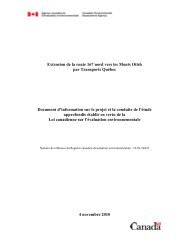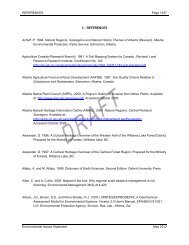Report - Agence canadienne d'évaluation environnementale
Report - Agence canadienne d'évaluation environnementale
Report - Agence canadienne d'évaluation environnementale
Create successful ePaper yourself
Turn your PDF publications into a flip-book with our unique Google optimized e-Paper software.
Project energy context<br />
implementation would result in a net increase in carbon dioxide emissions for Quebec<br />
The criticisms and doubts expressed arise form considerations that the Panel studied<br />
in greater depth.<br />
The Panel notes that the problem of the presumed relationship between<br />
anthropogenic carbon dioxide and unfavourable climate change constitutes a global<br />
challenge. In that sense, it is of the view that the territorial origin of emissions is of<br />
little importance inasmuch as the ultimate results of the efforts deployed by the<br />
countries and regions on the world lead to a reduction in the concentration of carbon<br />
dioxide in the atmosphere. The Panel estimated that the increase in emissions in a<br />
given sector of activity is not necessarily incompatible with the objective, or the<br />
feasibility, of reaching overall GHG emissions reductions of a country, a state, or a<br />
region. Increases by sector could in fact be compensated, depending on their<br />
magnitude, by compensatory or higher reduction measures in other sectors. That is<br />
how, for example, the allotment of national reduction charges divided among<br />
European Union member countries foresees and allows carbon dioxide emissions<br />
growth for member countries such as Norway and Portugal whereas emissions<br />
reduction targets are higher than the average of 6 percent of other member countries<br />
such as Germany.<br />
♦ Opinion 2 — In the Panel’s judgement, the carbon dioxide emissions reduction<br />
commitments under the Kyoto protocol allow increases by sector, when the situation<br />
justifies it, inasmuch as the overall reduction objective is achieved by compensatory<br />
reductions in other sectors of the economy such as transportation or by the adoption<br />
of proportional compensation measures aimed to counter these increases.<br />
Moreover, without denying the potential of the project to provide supply and price<br />
conditions that would favour the substitution of high carbon content fuels by natural<br />
gas in Quebec, the AQLPA expressed reservations about this potential. That<br />
organization believes that the projected fuel replacement level could not be attributed<br />
to a single LNG terminal project (DM592.1). It also believes that the beneficial effect<br />
of the project could diminish over time, thereby diminishing the carbon dioxide<br />
emission reduction advantages forecast in Quebec.<br />
On that basis, the AQLPA is of the opinion “that a program with objectives and adequate<br />
means making it possible to achieve a substitution level should underlie any development<br />
of the natural gas sector” in Quebec. It is also of the opinion that the uncertainty around the<br />
means the proponent would implement in order to concretely achieve the fuel replacement<br />
levels would make the GHG emission reductions “too hypothetical”.<br />
The Panel considers that the advantages foreseen in this area could only occur if a<br />
price differential in favour of natural gas exists in the Quebec market compared to<br />
Rabaska Project – Implementation of an LNG Terminal and Related Infrastructure 83


